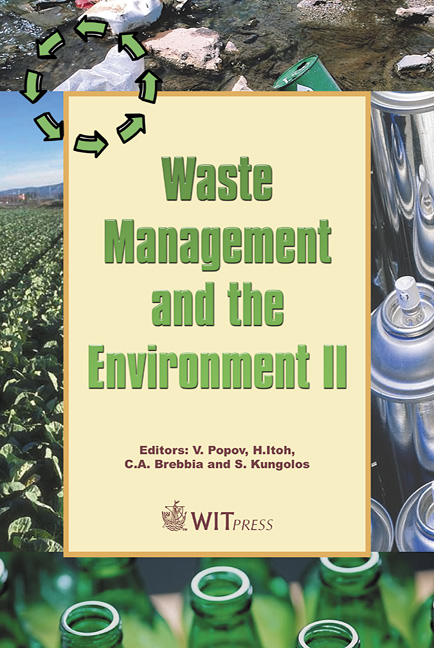Anaerobic Treatment Of Phenol In A Two-stage Anaerobic Reactor
Price
Free (open access)
Transaction
Volume
78
Pages
9
Published
2004
Size
282 kb
Paper DOI
10.2495/WM040201
Copyright
WIT Press
Author(s)
J. E. Hernandez & R. G. Edyvean
Abstract
The inhibitory effects of phenol are problematic for the anaerobic treatment of wastewater. The purpose of this study is to demonstrate that a two-stage anaerobic digester (TSAD) can degrade phenol, reducing its toxic effects in the first acidogenic reactor (R1) before going into a methanogenic reactor (R2). The system consisted of two reactors in semi continuous operation. R1 was a Continuous Stirred Tank Reactor at pH 5.5± 0.5; R2 was a packet reactor at pH 8.4± 0.05. Both were operated at a hydraulic retention time (HRT) of 10 days and 35 0 C and fed with a nutritional supplement at organic loading rate (OLR) of 1.8 grams of COD per litre of reactor per day (LR -1 Day -1 ) until steady state conditions. Then one gram of phenol was fed daily over a period of 15 days. The performance of the system was monitored and analysed in terms of degradation of phenol and dissolved chemical oxygen demand (DCOD); concentration of organic acids (OA) and suspended organic carbon (SOC); biogas production and pH evolution. The removal of phenol and DCOD peaked at 99.7% and 70% respectively. The biogas production in the methanogenic reactor reached 0.8195 Lbiogas LR -1 Day -1 . These experiments demonstrate that, given the right conditions, a TSAD can degrade phenol without considerable inhibition. Keywords: Two-stage anaerobic digestion, phenol degradation, mesophilic, acidogenesis, methanogenesis, cofermentation, inhibition. 1 Introduction Aromatic compounds are very abundant in the environment [1]. Anaerobic digestion can be affected by the presence of these compounds, which are highly refractory and prejudicial to methanogenic reactions [2-7]. The anaerobic
Keywords
Two-stage anaerobic digestion, phenol degradation, mesophilic, acidogenesis, methanogenesis, cofermentation, inhibition.





